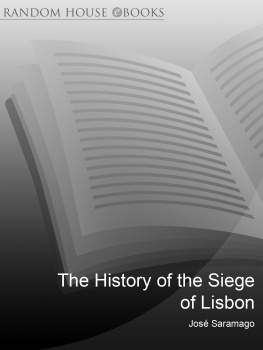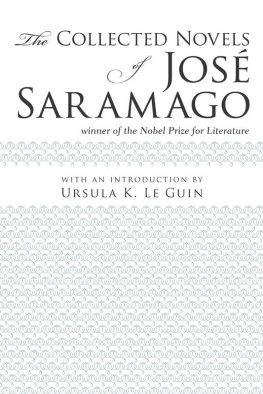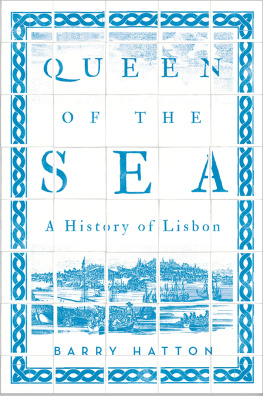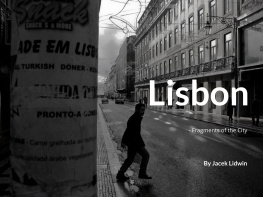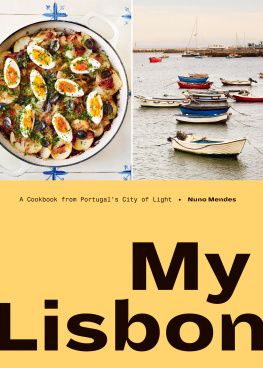Contents
About the Author
JOS SARAMAGO was born in Portugal in 1922. His oeuvre embraces plays, poetry, memoirs and several novels which have been translated into more than forty languages. It was the publication in 1988 of Baltasar & Blimunda that first brought him to the attention of an English-speaking readership. This novel won the Portuguese PEN Club Award, as did his next, The Year of the Death of Ricardo Reis, which also won the Independent Foreign Fiction Award. His subsequent novels have established him as one of Europes most influential living writers. In 1998 he was awarded the Nobel Prize for Literature.
GIOVANNI PONTIERO, formerly Reader in Latin-American Literature in the University of Manchester, was Saramagos regular English translator. His translation of The Gospel according to Jesus Christ was awarded the Teixeira-Gomes Prize for Portuguese translation. He was also the principal English translator of the works of Clarice Lispector. He died in 1996.
Also by Jos Saramago in English translation
Fiction
MANUAL OF PAINTING AND CALLIGRAPHY
BALTASAR & BLIMUNDA
THE YEAR OF THE DEATH OF RICARDO REIS
THE GOSPEL ACCORDING TO JESUS CHRIST
THE STONE RAFT
BLINDNESS
ALL THE NAMES
THE TALE OF THE UNKNOWN ISLAND
Non fiction
JOURNEY TO PORTUGAL
Saramago is one of Europes most original and remarkable writers... his writing is imbued with the spirit of comic enquiry, meditative pessimism and a quietly transforming energy that turns the indefinite into the unforgettable
RICHARD EDER, Los Angeles Times
This cryptic, ingenious novel... is never dull or humourless... No candidate for [the Nobel Prize] has a better claim to lasting recognition than this novelist who was born in 1922 but was in his mid-50s before he started to publish the fiction that has won him an international reputation
EDMUND WHITE, New York Times
Sensuous, teasing and mesmeric
CATHY PEAKE, Sydney Morning Herald
A book filled with lyrical and intellectual rewards
BILL MARX, Boston Globe
This hypnotic tale is a great comic romp through history, language and the imagination
Publishers Weekly
Saramago is an extraordinarily talented artist, the type of playwright, novelist, essayist and occasional poet irresistible to lovers of literature
ILAN STAVANS, Nation
For Pilar
The History of the Siege of Lisbon
Jos Saramago
A novel translated from the Portuguese by
Giovanni Pontiero

Until you attain the truth,
you will not be able to amend it.
But if you do not amend it,
you will not attain it. Meanwhile,
do not resign yourself.
From The Book of Exhortations
PREFACE
THIS NOVEL, WHOSE title suggests a book on Portuguese history, permits the author to speculate about the difference between historiography, historical novels and stories inserted into history which is the type of book Jos Saramago himself prefers to write.
By questioning the validity of a historical source and imagining an alternative version of recorded events, the proof-reader Raimundo Silva not only rewrites an important chapter of Portuguese history but in the process irrevocably transforms his own life. This History of the Siege of Lisbon is therefore neither conventional history nor historical novel, but demonstrates Saramagos contention that history and fiction are constantly overlapping.
The book operates on two planes of action: one set in the twelfth century, packed with key episodes of the alternative history of the siege of Lisbon the proof-reader Raimundo Silva feels compelled to write; the other in the twentieth century, dealing with the routine existence of the proof-readers daily life and a significant encounter with a new editor who challenges him to justify his radical departure from established historiography. Raimundo Silva who dominates the novel could be the alter ego of Saramago who refuses to accept history as it is traditionally presented and speculates about the gaps left in historical records which historians frequently gloss over with questionable theories and hypotheses. By placing real people into such historical lacunae, Saramago attempts to fill these voids more plausibly and in keeping with the modern readers expectation of historical verisimilitude. Thus when the proof-reader Raimundo Silva starts writing the alternative history of the reconquest of Lisbon, he emulates Saramagos technique of placing human experience against a historical background, in other words, he tries to write a hybrid narrative embodying past events and contemporary reactions to another age so remote yet tangibly present.
In the pursuit of this parallel plot, Saramago raises a number of issues which are also a central concern in many of his other books. How reliable are historical sources, and how trustworthy are historians in dealing with uncertainties, improbabilities and the gaps or lacunae? How are we to interpret speeches allegedly made by historical characters? What can we know about the private emotions of the people who make these speeches and those who record them with varying degrees of accuracy? All these questions are discussed in the form of a series of dialogues. The dialogue between the proof-reader and the author reveals once more Saramagos iconoclastic attitude to history. For Saramago, historiography itself is fiction for it results from a selection of facts coherently organised, leaving forgotten or committing to oblivion many other facts which, had they been taken into consideration, would have given a different shape to the same history. This attitude is further illustrated in the dialogues the proof-reader has with his alter ego, the witness of human adventures during the siege of Lisbon, and with his editor, Maria Sara, who provides the challenge that motivates him to try his hand at writing his own history. Placing the main action within present-day Lisbon, Saramago removes the novel from the genre of historical narrative while providing a platform for reflections on the art of reconstructing the past and the difference between writing history and fiction.
As in his other novels, Saramagos paragraph-long sentences, minimally interrupted by punctuation, challenge the reader to follow his continuous stream of thought, thus permitting a stronger sense of interaction and a more diverse interpretation of phrases and clauses. Keen that his reader should move easily back and forth between the present, the recorded and the imagined past, in this novel Saramago also freely shifts between past and present tenses, conveying the impression of the timelessness of the human imagination. This temporal fluidity is further emphasised by the strategic location of the proof-readers flat within the precinct of the old Moorish fortress, a kind of watchtower from where the perception of past and present alternate according to the proof-readers mood.
Beneath these speculations about the function and form of historical writing, we discover that the central concerns of Saramagos novel focus on our ability to distinguish truth from falsehood, to differentiate between reliable and suspect historical reporting, and the difficulty of drawing the frontier between the two, or in Saramagos own words: The truth is that history could have been written in many different ways and this idea of infinitude and variation are the essence of my writing. The possibility of the impossible, dreams and illusions, are the subject of my novels.
Next page
